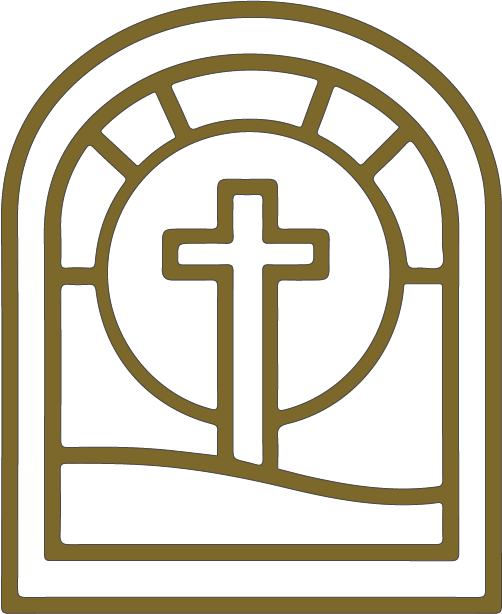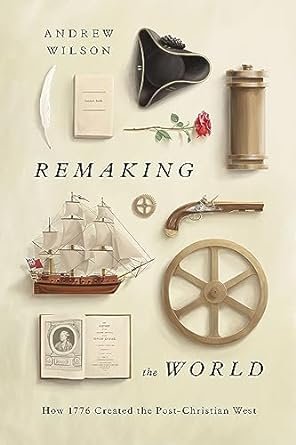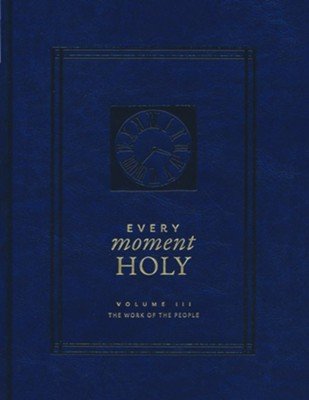Drake’s Favorite Theological(ish) Reads of 2023
Every year I get asked what good books I have read that year. I’m not sure why people keep asking me. Probably because they assume that in order to write long sermons you have to read long books. This is sadly not the case: anyone can ramble. But here we are.
My challenge to you is to read one more work of theology or Christian fiction this year than you did last year. If that is zero, then one is not a bad start. There is of course nothing inherently wrong with non-Christian art (provided it’s good art) or writing, but I am of the opinion that we should try hard to promote Christian creativity and thought in the world. We need more of it, and better quality too.
I try to keep up with my reading on goodreads, but it’s a pretty niche platform. In years past I have limited the list to theological/devotional books all released in the same year, but I’m branching out a bit more this year (I also read less this year!). All of these books have theological themes, but the list includes fiction as well (which were not released this year), as well as a few new books I will be reading next in 2024. In no particular order of importance, here are:
The BEST CHRISTIAN BOOKS RELEASED THIS YEAR (In MY OPINION)
Andrew Wilson, Remaking the World: How 1776 Created the Post-Christian West
Wilson is a pastor in London, but he also has the unique distinction of earning an advanced degree in history. Paired with his excellent and accessible writing, this is work is part a history of ideas and part a Christian understanding of the world. A great time, honestly. Keen without being poignant, thoughtful but not pedantic. Non-spoiler: it’s not about the American Revolution (although it has one chapter concerning it).
Gavin Ortlund, Humility: The Joy of Self-Forgetfulness
Gavin is an exceptional young voice in both academic and accessible writing for the church. His specialities are in early church history and apologetics, but he also has pastoral experience and a pastoral heart. This work is light (less than 150 small pages) and a little like going behind the scenes on the process of Gavin’s humble ministry. It may not allow you with some majestic illustrative grandeur, but it will give you the strong sense that humility is both possible and worthwhile. That is in itself an accomplishment.
Abigail Favale, The Genesis of Gender: A Christian Theory
This one on Gender Theory and Feminism was released last year, but I only got the chance to read it this year. Because I am not an official reviewer of any kind, I’ll count it!
Here is what I can say: I was floored. Truly an achievement on every level. Favale writes with class, nuance, clarity, and conviction. It's also highly readable. Part history, part expose, part sacramental theology, I was often audibly shocked (my wife thought I was reading a thriller) at the severity of shameful weight placed on women in our culture and also wept for our inability to see it. A fresh understanding for me on the feminine condition. Please read.
Harrison Scott Key, How to Stay Married: The Most Insane Love Story Ever Told
I may never review a book quite this funny, and to be honest, as shocking. It’s not theology, it’s not devotion, I suppose you could argue it’s not Christian (I think wrongly), but it’s necessary.
It's one of those books you have to read quickly otherwise you'll just get overwhelmed. It's tragic, and yes, it is funny, but more than that, it's a stab at something much deeper than just "laughing through the tears." Key has found actual truth, iterated in his own way, that is ancient. Truth that is worth fighting for, and hard to believe. It's the truth that marriage predates the ruin of Eden, and is therefore worth staying in, not for comfort or pleasure alone, but for glimpses through pain into Paradise. As he rightfully points out, the essence of comedy is that it always ends in marriage, and the Christian story is the greatest comedy ever told.
Also bonus that a popular level book speaks clearly and supportively of the church. There are local outposts and embassies of Heaven out there folks, places with air thick of grace; you just have to be willing to realize you might be the reason you can't find one.
Paul Miller, A Praying Church: Becoming a People of Hope in a Discouraging World
Paul Miller has become one of my favorite practical and devotional writers. He seems to just understand Jesus, a true disciple who has sat at his feet. This work is incredibly convicting, especially for pastors, but also full of grace. In it, Miller aims to help normal, faithful churches to recover their spiritual “engine” and start praying again.
Christopher Watkin, Biblical Critical Theory: How the Bible's Unfolding Story Makes Sense of Modern Life and Culture
I didn’t finish this book (sorry), but that is really because it is over 6000 pages. The length (and my inability to finish it) does not take away from its significance. It can difficult to read at times, but this is not an academic slog. Everyone should consider picking it up. The work follows the Biblical narrative from Genesis to Revelation, showing how the Word of God and the story of God can be used as a comprehensive, critical framework for understanding the world.
Karen Swallow Prior, The Evangelical Imagination: How Stories, Images, and Metaphors Created a Culture in Crisis
I am only about 1/3 of the way through this one, since I just picked it up, but I like it enough to include it on this list. Prior is primarily a compiler and synthesizer of information: she does a phenomenal job showing how our social imaginary (to borrow from Taylor) shapes our desires and our understanding of self. Since part of my “self” is my experience of evangelicalism, Prior’s history of thought has been helpful in a journey of self-discovery. Perfect for your history minded friend.
Douglas McKelvey (Author), Ned Bustard (Illustrator), Every Moment Holy, Volume III: The Work of the People
Doug McKelvey is the author of the immensely popular Every Moment Holy Volumes 1 and 2, but for this volume he extended an invite to a variety of talented authors, artists, and poets to write new liturgies for every moment. This is something truly unique and beautiful that the other volumes did not have, and in my opinion it makes it ever stronger. There are prayers for celebrations, sorrows, confusion, and all kinds of varied work and creative efforts—all from a great diversity of voices ancient and modern—creating a beautiful mosaic of devotional helpfulness. All of this is wrapped up in a truly stunning leather bound navy cover with gold trim, which makes it a perfect gift.
The best part of all is my wife Allie has a published liturgy in the volume: “Before Teaching”. I am biased, but if you are a teacher, it is worth the price of the book alone!
THE BOOKS RELEASED THIS YEAR THAT I’M READING NEXT (and you can join me!)
John Andrew Bryant, A Quiet Mind to Suffer With: Mental Illness, Trauma, and the Death of Christ
A memoir from a new author exploring the inner life of the mind and the suffering of mental illness, with a lens to how Jesus meets us in those lowest of moments. I’m anticipating it will be a great help!
James K. A. Smith, How to Inhabit Time: Understanding the Past, Facing the Future, Living Faithfully Now
I have read pretty much everything that Jamie Smith has put out recently, and I find his insights into the spiritual life significant and quite unique. He specializes in Augustine, and I have no doubt that this work will be a smooth blend of philosophy, theology, and devotion.
Jared Wilson Friendship with the Friend of Sinners: The Remarkable Possibility of Closeness with Christ
I will take a big L here. I’ve read everythign Jared has written and always been blessed by it, and this is a topic close to my heart. How did I neglect it this long? You be the judge, but I’m reading it soon, and I recommend you do too.
Two OLD(ER) works of Christian fiction you should read IN 2024
Eugene Vodolazkin, Laurus
A fictionalized hagiography (bio of a saint) written by a modern Russian Orthodox historian in a mix of ancient and colloquial language? This doesn’t sound at first like a book any Western Protestant would pick up. On the surface, it seems to have a lot working against it. Vodalazkin writes with a strange mix of modern and ancient literary style, not to mention some things that might be lost in translation or through lack of cultural context in the West. The main character is almost unlovable at times, entirely pitiable in his lack of peace. There are scenes of intense suffering and trauma. The plot is at times thin and more episodic than cohesive.
And yet, it hits. There is a spiritual potency and emotional power behind the story that is fascinating. You truly begin to sense that Vodalazkins great genius in this book is that he has made the mysteries of sin, repentance, mercy, and eternity even more mysterious and yet even more compelling. The structure is very well done, almost as if there are four novels in one. And the ending is masterful.
It was also refreshing that the world of the novel feels much saner than the one we live in today. It's popular right now to romanticize medievalism, but maybe there is a reason for that. Vodalazkin doesn't shy away from the suffering of the time, but he also isn't afraid to show the strengths of the medieval ability to assume God has a hand in everything.
If you find hagiography a bit too much, this is a good fictional intro. The beauty of it is that in the end you feel a desire for Godliness, regardless of your views on asceticism, orthodoxy, or faith in general. A rare truly Christian novel that reaches through to any human heart.
Frederick Buechner, Godric
Another fictionalized hagiography, which means I am two for two! This is an enchanting work that every Christian should read. Buechner knows how to write sentences. Nothing is forced in this novel, not even the minutia. It's slightly challenging to get into, but if you've read hagiography at all then this is like a sticky sweet dessert. I suspect Godric as a character will remain in my imagination for a long time, and haunt my prayers and spiritual life with a gentle, human touch. Well done.














